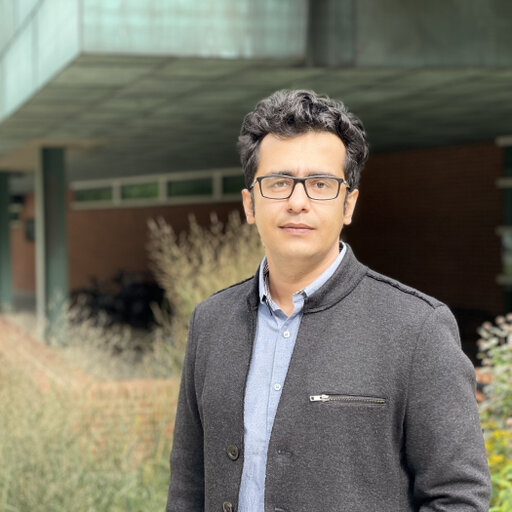
DB 4.362E, 501 W César E Chávez Blvd, San Antonio, TX 78207, USA
farzad.hashemi@utsa.edu
Faculty Profile
School of Architecture and Planning
Google Scholar
Biography
Dr. Hashemi is an Assistant Professor of Architecture and an affiliated faculty member with the Department of Mechanical Engineering at the University of Texas at San Antonio (UTSA). He serves as the Coordinator of the High-Performance Design & Sustainability Graduate Certificate (HPD&S) and is the founding director of the Climate-Sensitive Design Lab (CSDL) at the UTSA School of Architecture + Planning. Dr. Hashemi holds a Ph.D. and two master’s degrees in architecture.
Research Interests
Dr. Hashemi’s research focuses on exploring the intricate connections between urban microclimates and the energy performance of buildings, with a particular focus on vulnerable communities. Dr. Hashemi is particularly interested in developing strategies and tools that address climate adaptation and mitigation, focusing on the intersection of urban design, building technology, and social equity.
Work Experience
- Assistant Professor, University of Texas at San Antonio, 2023 – Present
- Ph.D. researcher at the Hamer Center for Community Design, Stuckeman Family Building, The Pennsylvania State University, 2018 – 2023
Education
- PhD in Architecture, The Pennsylvania State University (2023)
- MS in Architecture, Iowa State University (2018)
- Master of Architecture, Politecnico di Milano University, Italy (2015) BA in Architecture, Shahid Bahonar University of Kerman, Iran (2012)
Publications
- Hashemi, F., Mills, G., Poerschke, U., Iulo, L. D., Pavlak, G., & Kalisperis, L. (2024). A novel parametric workflow for simulating urban heat island effects on residential building energy use: Coupling local climate zones with the urban weather generator a case study of seven U.S. cities. Sustainable Cities and Society, 110, 105568. https://doi.org/https://doi.org/10.1016/j.scs.2024.105568
- Hashemi, F., & Adib, M. (2024). Examining thermal inequities: Land surface temperature, social vulnerability, and historical redlining in San Antonio, TX. Urban Climate, 55, 101960. https://doi.org/https://doi.org/10.1016/j.uclim.2024.101960
- Hashemi, F., Poerschke, U., Iulo, L. D., & Chi, G. (2023). Urban Microclimate, Outdoor Thermal Comfort, and Socio-Economic Mapping: A Case Study of Philadelphia, PA. Buildings, 13(4).
- https://doi.org/10.3390/buildings13041040
- Hashemi, F., Ghiasi, S., Salehi, N., & Passe, U. (2024). Comparative Analysis of Urban Heat Island Effects on Building Energy Consumption in the U.S. Midwest: A combined workflow using Urban Weather Generator and Future Typical Meteorological Year Climate Scenarios, PLEA 2024 WROCŁAW: (Re)thinking Resilience.
- Hashemi, F., Iulo, L. D., & Poerschke, U. (2022). A parametric investigation of canopy heat islands mitigation strategies: A case study of a new residential development master plan of a U.S. north-eastern city. In Proceedings of the 6th Biennial Residential Building & Construction Conference.
- Hashemi, F., Poerschke, U., & Iulo, L. D. (2020). A novel approach for investigating canopy heat island effects on building energy performance: A case study of Center City of Philadelphia, PA. In Proceedings of AIA/ACSA Intersections Research Carbon Conference: CARBON.
Teaching
University of Texas at San Antonio (UTSA)
- ARC 5733 Advanced Building Technology and Sustainability
- ARC 5723 Applications in Sustainable Design
The Pennsylvania State University
- ARCH 412 Integrative Energy and Environmental Design
